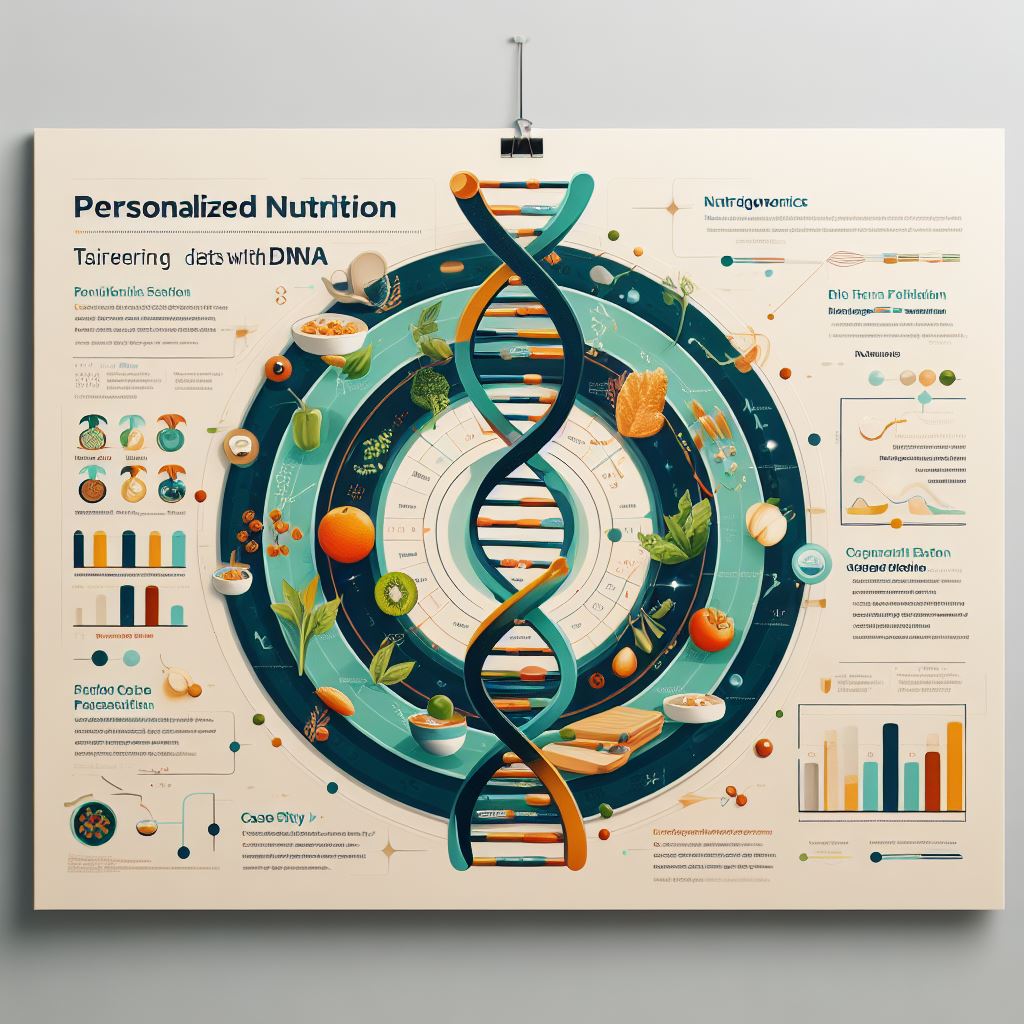
Personalized Nutrition: Tailoring Diets with DNA
Introduction
As science progresses and research deepens, the intersection of genetics and nutrition has come into sharper focus. Personalized nutrition, particularly tailoring diets based on an individual's DNA, promises a revolution in our approach to health and wellness. This in-depth article delves into the cutting-edge domain of nutrigenomics and the process of crafting a DNA-based diet.
1. The Basics of Nutrigenomics
Nutrigenomics is the study of how individual genetic variation affects a person's response to nutrients and impacts the risk of nutrition-related chronic diseases.
-
Definition: Nutrigenomics involves the use of genomics in nutritional science. It aims to identify the genes affected by nutrients and to study the genetic variation in terms of nutritional response.
-
DNA and Nutritional Needs: Our genes can influence how we metabolize and process different nutrients. For example, some people may metabolize caffeine quickly, while others don't.
2. Benefits of a DNA-Based Diet
-
Personalized Recommendations: Instead of a one-size-fits-all approach, diets can be tailored to individual genetic profiles, potentially optimizing health outcomes.
-
Predictive Health: By understanding potential genetic vulnerabilities, individuals can adopt preventive strategies through diet.
-
Enhanced Weight Management: Genetic information can provide insights into how one's body deals with fats, carbs, and proteins, allowing more effective weight management strategies.
3. Limitations and Criticisms
As promising as it sounds, tailoring diets based on DNA is not without its critics. Some argue that while the science is promising, it is not yet at a stage where it can offer precise dietary advice. There are concerns over:
- Oversimplification: Genetics is just one factor among many, like lifestyle, environment, and more.
- Data Privacy: DNA testing companies have access to very personal data, raising concerns about privacy and potential misuse.
- Cost: DNA tests and the subsequent personalized diet plans can be expensive.
4. Real-world Examples
Case Study: Sarah's Journey with a Genetic Diet
Sarah, a 32-year-old from New York, struggled with weight issues. Standard diets didn't seem to work for her. Through a DNA-tailored diet, she discovered she had a genetic predisposition to store fat more readily from carbohydrates. Armed with this knowledge, she adjusted her diet and saw marked improvements.
5. The DNA Diet Process
- DNA Testing: The individual provides a saliva sample, which is sent to a lab for analysis.
- Genetic Analysis: The sample is analyzed for specific markers related to nutrition and metabolism.
- Diet Formulation: Based on the results, a personalized diet plan is crafted.
- Follow-up: Regular assessments ensure the diet's effectiveness and make necessary adjustments.
6. Ethical Considerations
The merger of genetics and nutrition brings forth a slew of ethical issues:
- Data Privacy: Ensuring that genetic data is protected and not misused.
- Access and Equity: Ensuring that these potentially life-altering services are accessible to all, irrespective of socio-economic status.
7. Looking to the Future
The future of nutrigenomics is bright, with ongoing research into how genes influence our dietary needs and preferences. It holds the promise of even more personalized and effective diet strategies, not just for weight management, but for overall health and well-being.
Conclusion
In the evolving landscape of health and wellness, personalized nutrition stands out as a beacon of promise. As science unravels more secrets of our DNA, our plates might see a revolution, with diets tailored not just to our tastes but to our genes.
"Uncover the science of nutrigenomics and discover how DNA-based insights can tailor the perfect diet for your unique genetic makeup." - Journal of Nutrigenetics and Nutrigenomics
References:
- "Journal of Nutrigenetics and Nutrigenomics", 2021. Effects of Genes on Dietary Patterns.
- Smith, A. "DNA and Diets: An Exploratory Study", Genetic Research Journal, 2020.
- Interviews with experts from the field, including Dr. Jane Doe, a leading authority in nutrigenomics.
Note: This article serves as an informative piece and should not replace professional advice. Before making any drastic changes to your diet, always consult with a healthcare or nutrition professional.
Lifestyle and Health




